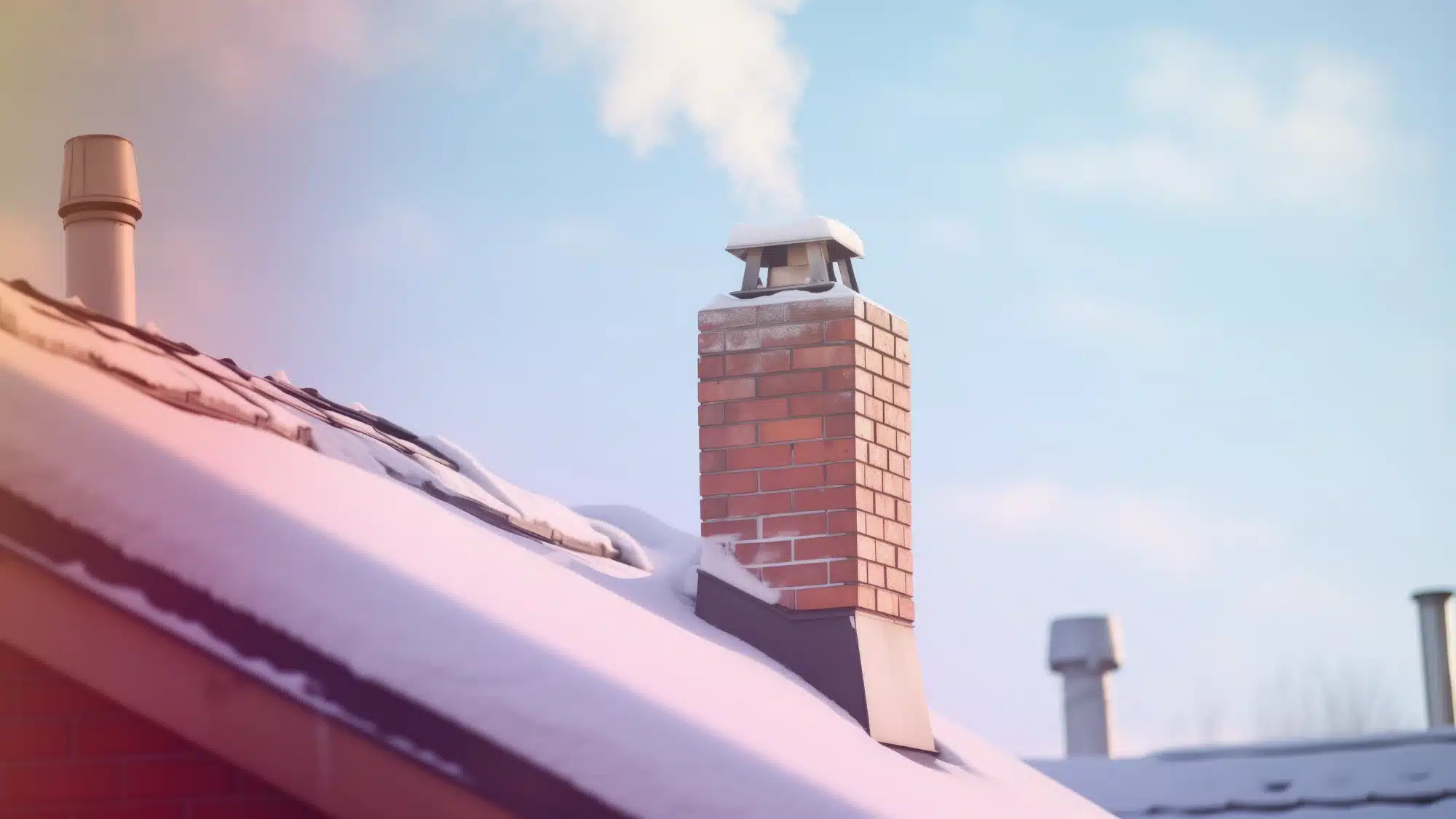
When wood smoke smells worse in cold weather, it’s often due to a combination of atmospheric conditions and what’s happening inside your chimney. Temperature inversions, reduced ventilation, and chimney performance issues all play a role in intensifying wood smoke odors during winter.
Why Does Wood Smoke Smell Stronger in Cold Weather?
1. Temperature Inversions Trap Smoke
- Cold air near the ground acts like a lid, trapping smoke and pollutants at breathing level instead of letting them disperse upward.
- This phenomenon, called a temperature inversion, is common on cold, still winter nights and mornings, causing wood smoke to linger and concentrate around homes and neighborhoods.
2. Reduced Ventilation Indoors
- In winter, homes are sealed tight to keep out the cold, which means less fresh air circulates.
- Smoke particles and odors accumulate indoors, clinging to furniture, curtains, and clothing, making the smell more noticeable and persistent.
3. Chimney Performance in Cold Weather
- When it’s cold, the chimney draft can be weaker at startup, especially if the flue is cold. This can cause smoke to spill back into the home before the draft fully establishes.
- Creosote and soot buildup inside the chimney can further restrict airflow, increasing the risk of smoke backup and stronger odors.
- A missing or damaged chimney cap can let cold air, moisture, and debris enter the flue, disrupting proper draft and allowing more smoke to escape into living spaces. Searching for a “chimney cap near me” can help you find local professionals to inspect and install a proper cap, improving chimney performance and reducing smoke odors.
What’s Happening Inside Your Chimney?
- Incomplete combustion in cold conditions can produce more smoke and odor-causing particles.
- Cold flue walls can cause smoke to cool and slow down, making it harder for the chimney to draw smoke out efficiently.
- Blockages or poor maintenance (like a missing chimney cap) can worsen these issues, trapping smoke and increasing odor indoors.
Health and Comfort Considerations
- Wood smoke contains fine particulate matter and chemicals that can irritate lungs and worsen conditions like asthma or heart disease.
- If you can smell wood smoke, you are breathing in pollutants that can impact your health.
How to Reduce Wood Smoke Odors in Winter
- Install or repair a chimney cap to keep out cold air, moisture, and debris, and to help maintain proper draft. Search for a “chimney cap near me” to find local experts.
- Burn only dry, seasoned wood for cleaner combustion and less smoke.
- Schedule regular chimney inspections and cleanings to remove creosote and ensure safe, efficient operation.
- Improve indoor ventilation when burning wood, but avoid drafts that could disrupt the chimney’s airflow.
Chimney Works recommends regular chimney maintenance and the installation of a quality chimney cap to keep your home safe, comfortable, and free from excessive wood smoke odors—especially during the coldest months. If you’re noticing stronger smoke smells this winter, it may be time to search for a “chimney cap near me” and schedule a professional inspection.

